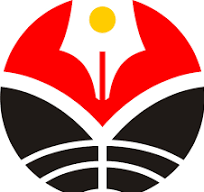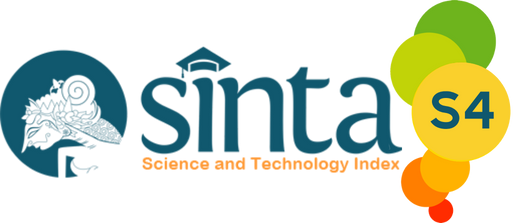Evaluation of Learning in Civil Engineering Study Program Groups in the Field of Science and Environment in the 21st Century Learning System
Abstract
Keywords
Full Text:
PDFReferences
Peña-Ayala, A. (2021). A learning design cooperative framework to instil 21st-century education. Telematics and Informatics, 62, 101632. http://doi:10.1016/j.tele.2021.101632.
Chairunnisak. (2020). Implementation of 21st Century Learning in Indonesia,"Pros. Semin. Nas. Technol. Educator. Postgraduate. UNIMED, pp. 351–359, 2020.
Ifenthaler, D., Sampson, D. G., & Spector, J. M. (2018). Linking analytics data and digital systems for supporting cognition and exploratory learning in the 21st Century. Computers in Human Behavior, 78, 348-350. http://doi:10.1016/j.chb.2017.10.016.
Aldowah, H., Al-Samarraie, H., & Fauzy, W. M. (2019). Educational data mining and learning analytics for 21st century higher education: A review and synthesis. Telematics and Informatics, 37, 13-49. http://doi:10.1016/j.tele.2019.01.007.
Pappas, I. O., Giannakos, M. N., & Sampson, D. G. (2019). Fuzzy set analysis as a means to understand users of 21st-century learning systems: The case of mobile learning and reflections on learning analytics research. Computers in Human Behavior, 92, 646-659. http://doi:10.1016/j.chb.2017.10.010.
Taar, J., & Palojoki, P. (2021). Interthinking for learning 21st-century skills in home economics education. Learning, Culture and Social Interaction, 2021. http://doi:10.1016/j.lcsi.2022.100615.
Qian, M., & Clark, K. R. (2016). Game-based Learning and 21st-century skills: A review of recent research. Computers in human behaviour, 63, 50-58. http://doi:10.1016/j.chb.2016.05.023.
Andersen, R., & Rustad, M. (2022). Using Minecraft as an educational tool for supporting collaboration as a 21st-century skill. Computers and Education Open, 3, 100094. http://doi:10.1016/j.caeo.2022.100094.
Shenasa, M. (2018). Learning and teaching electrocardiography in the 21st century: A neglected art. Journal of electrocardiology. http://doi:10.1016/j.jelectrocard.2018.02.007.
Teo, P. (2019). Teaching for the 21st century: A case for dialogic pedagogy. Learning, Culture and Social Interaction, 21, 170-178. http://doi:10.1016/j.lcsi.2020.100412.
Lavi, R., Tal, M., & Dori, Y. J. (2021). Perceptions of STEM alumni and students on developing 21st-century skills through methods of teaching and learning. Studies in Educational Evaluation, 70, 101002. http://doi:10.1016/j.stueduc.2021.101002.
Refbacks
- There are currently no refbacks.








